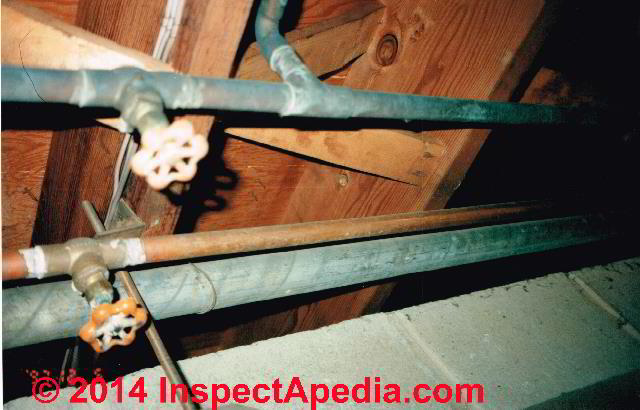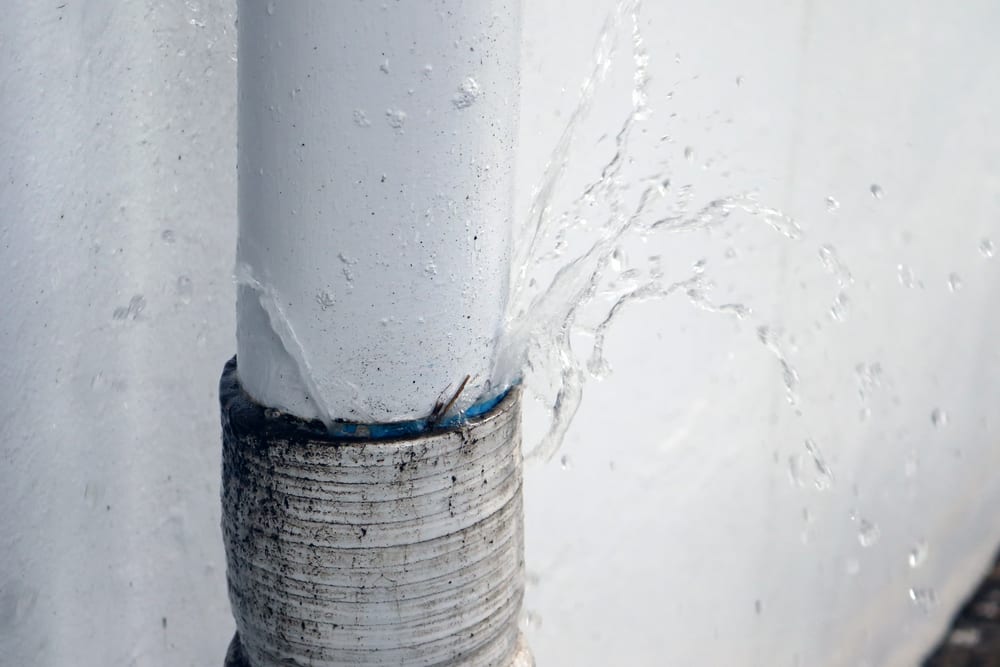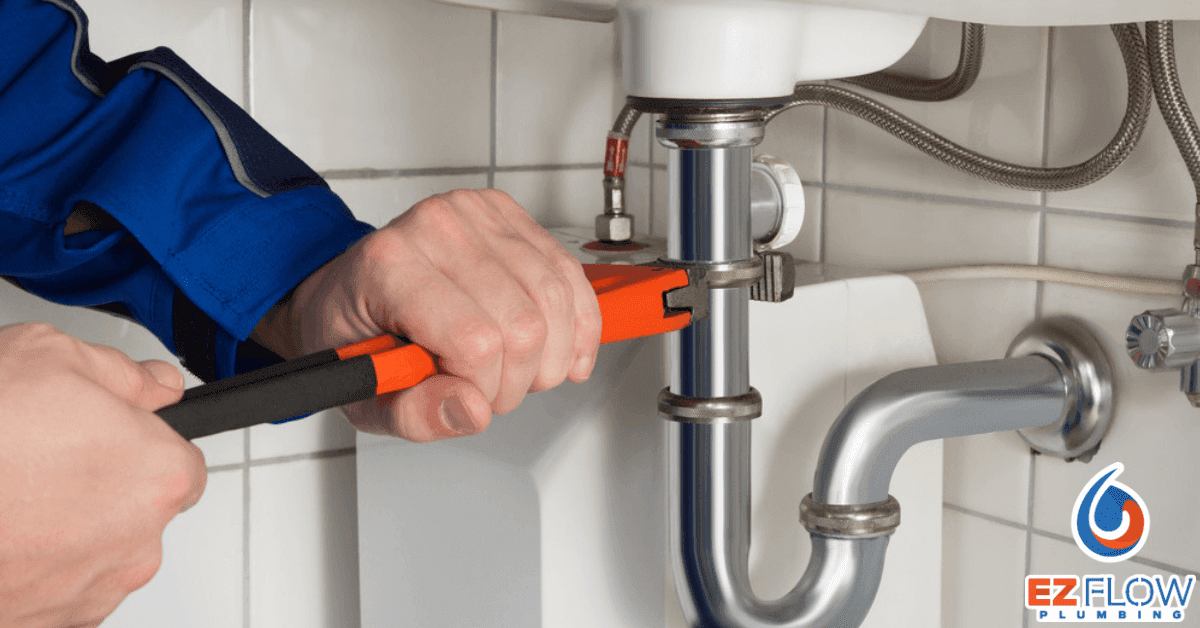While this may seem like a problem exclusive to summer, it also happens when we’re heating our portland homes in winter. When you test the water pressure, make sure all other water fixtures are off and.
/water-heater-problem-making-noises-4103881-hero-c95f2783e8c94bc8972b4918ceca1946.jpg)
What To Do When Your Water Heater Is Making Noises
Every time you hear the bang, the reverberations may be doing damage to your plumbing.

What does it mean when your pipes are yelling. If the sounds you are hearing seem to originate from behind walls or ceilings, the issue could be with the straps that secure them in place. (you can find one at your local hardware store.) make sure the water is turned off inside. Your cold water pipes involve water, water pressure, water flow rate, pipe diameter, and.
If a banging sound becomes present in your pipes, this is likely due to loss or faulty anchoring. It’s also bad for your pipes. When warm, humid air meets cold pipes, moisture beads on the outside of the pipe.
If your home was built in or before the 1960s: When you remove the straps, make sure you do it carefully. If this is the case, you’ll notice that, as with loose pipes, the noise only occurs while the water is running.
A pressure reducing valve can often be found near your main water supply line. If they are already secure, and the clamps have come loose, replace the nails holding the clamps with screws. Normal water pressure is normally between 30 and 55 psi.
These straps are made of metal or plastic and may wear down or break over time. Squeals and shrieks from water pressure tank. Sweating pipes occur when the water inside the pipe is colder than the humid air surrounding it.
As colder, outside water flows through the supply lines leading into your home, it is introduced to the warm and humid air inside. The noise you hear, however, will be more of a quiet tapping sound rather than a full knocking. The water inside your pipes has come to a dead stop, and then the water is hitting the wall of the pipes at a high speed, which causes a bang.
Wrap it where the pipe meets the anchoring straps. To fix this issue, all you need to do is wrap a thin layer of rubber or fabric around the pipe. To fix this issue, remove the showerhead and cleaning out the showerhead pipe.
Hot water rushing through cold pipes will make the pipes expand and rattle against any studs or pipes nearby. As the water flows through the narrower section, it will create this noise. To test the water pressure in your home yourself, you will need to purchase a threaded pressure gauge.
No water is coming out of the faucet. As early as 1600, the word pipe was being used as a slang or a euphemism for a penis…because, well, pipes look like penises. Insulate your cold water pipes to avoid condensation and drips onto the floor.
By checking the water pressure, you can determine if the pressure is too high coming into the house or if there's another situation that's affecting the pipes.you can get a simple water pressure gauge that screws onto the outdoor hose faucet that's closest to your main water supply. A squealing water pressure tank sound is often due to water passing through a restricted valve or pipe clog. If you or a tenant turn on a kitchen or bathroom faucet and only a slight trickle of water—or no water flow—comes out, the water pipe leading to the faucet may be frozen.
If the pipe can't be accessed, wedge padding at the point the pipe exits the wall or at shut. The knocking sound will be louder, and the risk of joint breakage increased. But humans are have dirty minds and see sex everywhere.
Another sign that you may have a frozen pipe on your hands is a lack of running water. Sweating water pipes are a common occurrence that can lead to excessive dampness, especially in residential basements. When the pipe expands, the expansion of the pipe causes it to rub against the anchoring straps, creating the squeaking sound.
Your water pressure is too high. What people popularly refer to as sweating pipes. Water flowing through your home's hot water pipes can cause a wide range of puzzling, disturbing or downright annoying sounds.
If this occurs, the knocking sound will progress from occurring only when you flush the toilet to any time you use water that passes through wherever the pipes have come loose. That you hear the noise when you turn the faucet on quickly, indicates that the sudden movement of water causes pipes that are not properly secured to hit against the framing. This problem commonly develops in faucets and toilets as washers and internal fixtures wear out.
Older homes were frequently built with air chambers to prevent water hammer. A vibrating pipe noise typically indicate that there is excessive water pressure running in the pipelines. If the water pressure is too high, your pipes may rattle around regardless of how well they’re secured to the wall.
If the pipe gets clogged up by any mineral deposits, the water may make a whistling sound as it tries to squeeze through. An air chamber is simply a pipe connected to your pipes with a “t” fitting and capped off at the top. Pipes making noise while running cold water.
To find out if this is the case, test your system with a water pressure gauge. Stop cyclical banging or clattering sounds by more securely fastening banging pipes to the framing with pipe clamps or mounting straps. You may have to remove the anchoring strap before you can wrap the pipe in the right location.
What you’re hearing is the sound of the pipes striking walls or other pipes as water rushes through them. Water pipes that make a groaning or hissing noise are often indicating a constriction somewhere in the waterline. The quick change in pressure when you turn it on can loosen your pipe fittings, so make sure to adjust your water pressure regulator if needed.
This capped off pipe was filled. The most common reason your pipes are rattling is that showering uses a lot of hot water. Your pipes are not sweating.
If they are no longer holding your pipes in place, your plumbing may emit squealing or banging sounds. The expression laying pipe as a slang term for “having sex,” whether vaginal or anal intercourse involving a penis, came into use around 1940 in the united states. You can usually find these at a home improvement store, such as home depot or lowes, for around $10.
Shrieking from a water pressure tank that incorporates a bladder may be due to a partly collapsed bladder or obstruction at the tank entrance fittings. The fix to your water hammer problem depends on when and how your home was built. In typical practice, water piping is anchored every 8 to 10 feet vertically and 6 to 8 feet horizontally.
To fix this problem and get rid of that irritating sound, lower the water pressure in the pipes. The hammer noise isn’t just a nuisance: Understanding the causes of common.
Pipes and tanks don't literally sweat. If the water pressure in your home gets too high for your plumbing system capacity, your pipes may make a moaning, hissing, or humming noise. Using a screwdriver, lower the water pressure valve to just below 50 psi.
The cold water pipes attract the moisture in the warm air causing condensation to form on the. Why water hammer is a problem. To determine the source of the problem, you will want to.
Causes of noisy hot water pipes. If you hear a banging or knocking noise coming from the sink or from the pipes in the wall when you start running cold water, this most likely indicates that the cause is high water pressure. Water is condensing from moist air onto the surface of the cold water pipe.

Building Water Supply Pipe Whistling Or Shrieking Noise Causes & Cures

Scary Plumbing Sounds You Shouldn't Ignore — High Priority Plumbing

How To Fix Whistling & Banging Water Pipes: Helpful Tips & Steps - Fenwick Home Services

What Do Noisy Water Pipes Mean?

Why Your Pipes Are Making Loud Noises